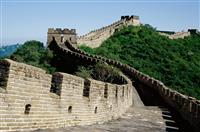
During the late Qing Dynasty (late 19th – early 20th centuries), with the introduction of the New Administration reform, there were vigorous "self-governing" movements in many regions in China. In Nantong, South China, there was a rather striking example of self-governing closely related to the businessman Zhang Jian. Zhang Jian emphasized on industrial economy and "village ideology" to promote urban development and social transformation, changing Nantong into China’s first successful "special zone." Although this social practice eventually failed, it achieved successful practice of modern social transformation through local elites, which were the industrialists and gentries under the "self-government consensus" of the people and of the government, and serves as a model for the generations to come.




